-
 +34 +5
+34 +5For the First Time a Silicon-Air Battery Runs Longer than 1,000 Hours
After oxygen, silicon is the most abundant element in the Earth’s crust. Its reserves are practically inexhaustible and it is cheap. When researchers look at an alternative to the current lithium-ion battery, it makes sense that they turn to silicon. Silicon-air batteries are not only smaller and lighter than their lithium-ion counterparts, but also have a much higher energy density. In addition, they are insensitive to external influences and environmentally friendly. Thus far, they have however only achieved relatively short running times.
-
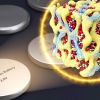 +17 +4
+17 +4Their time has come
Batteries are notoriously hard to improve. Nowhere was this more apparent than at the opening last week, on July 29th, of Tesla’s Gigafactory, a massive battery plant in Nevada. According to its boss Elon Musk, Tesla built the factory because wringing more efficiency out of batteries is far more difficult than optimising the process by which they are made. It is an ironic coincidence, therefore, that last week also saw the publication, in Nature Energy, of a paper outlining a way of making a battery whose prototype stores twice as much juice as the lithium-ion cells the Gigafactory will turn out...
-
 +7 +3
+7 +3'World's largest' SSD revealed as Seagate unveils 60TB monster
Seagate has been showing off its monster 60TB solid-state drive (SSD) this week, which breezes past the 15TB SSD that Samsung launched in March. But don't expect to see Seagate's SSD in a consumer device any time soon, with the new drive set to join the high-performance end of its datacenter portfolio. Samsung's PM1633a has a 2.5-inch form factor and holds 15.36TB of data. For now, it remains the largest commercially available SSD and reportedly costs $10,000 per unit.
-
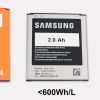 +27 +6
+27 +6Smartphone batteries with twice the life may arrive in 2017
SolidEnergy is preparing to commercialize its "lithium metal" tech. The company now has its own facility and is building towards a November 2016 launch with drone batteries. Following that, it plans to commercialize cells for smartphones and other electronics in 2017, with EV batteries to follow in 2018.
-
 +27 +8
+27 +8Samsung Expected to Announce Recall of New Galaxy Note 7 Due to Exploding Batteries
Following reports of exploding batteries in its latest smartphone, Samsung is expected to announce an "unprecedented" recall of the Galaxy 7 Note less than a month after it first debuted. According to South Korea's Yonhap News Agency, an unnamed Samsung official says the company is conducting an investigation and is expected to announce the results this weekend or early next week. Samsung has indeed traced the explosions to the battery of the device and is in talks with Verizon and other U.S. business partners to figure out how to deal with the issue.
-
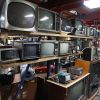 +16 +5
+16 +5Tinkerers, advocates fight for 'right to repair' devices
With electronics becoming ever harder to fix because of design and legal restrictions, a loose coalition of repair professionals and environmentalists is putting the screws to manufacturers that they claim are fattening their bottom lines by deliberately engineering disposability into their products. Loosely known as the "right to repair" movement, its advocates say the ability to tinker with products you own is a basic property right and necessary to create a healthy sustainable market.
-
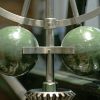 +7 +2
+7 +2How the 18th-century steam engine helped physicists make a quantum breakthrough
A new technique can remove noise from tiny electronic circuits, raising hopes of extremely efficient electronics and quantum technologies. By Clive Emary.
-
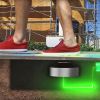 +19 +3
+19 +3Las Vegas streetlights are powered by your footsteps
Las Vegas is famous for its lights, bright sunny days and copious pedestrian traffic. That no doubt made it the perfect place for clean tech startup EnGoPlanet to test new LED streetlights powered by both photovoltaic panels and kinetic footstep pads. Married with a battery, the setup not only lights up the Boulder Plaza in downtown Vegas, but also powers security cameras (yep), WiFi hotspots and portable charging stations.
-
 +29 +12
+29 +12As Batteries Keep Catching Fire, U.S. Safety Agency Prepares For Change
Picture this: You're at a park, on a walk, with a baby. A friendly middle-aged man approaches you and tells you your stroller could be really dangerous. You might think this man is crazy. But maybe not if you knew he's the nation's product safety chief. "I couldn't live with myself if I walked away and it turned out that that child was harmed when I could've just said something," Elliot Kaye says. His voice is soft-spoken and his worldview seems to fluctuate between pride in saving lives and the unease of someone who has seen many things go wrong in unexpected ways. "You can't help it; you just automatically see the hazards."
-
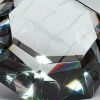 +45 +8
+45 +8Scientists turn nuclear waste into diamond batteries that last virtually forever
Researchers at the University of Bristol have developed new technology for converting nuclear waste into man-made batteries that produce a small electrical current, resulting in a battery that can last essentially forever.
-
 +31 +6
+31 +6Galaxy Note 7 broke basic engineering rules, says damning new report
A teardown of the Galaxy Note 7 may have revealed why the device was a fire-hazard, and eventually canceled. It's shown the battery didn't have enough space to expand naturally, potentially causing internal layers to touch, and eventually catch fire.
-
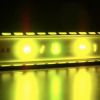 +35 +3
+35 +3Engineers Have Achieved Wi-Fi Using 10,000 Times Less Power
Wi-Fi is amazing, but there's no denying that all those hours of Netflix binging and scrolling Facebook can be a real energy suck, rapidly draining your phone's battery life.
-
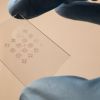 +30 +6
+30 +6Printable electronics
The next time you place your coffee order, imagine slapping onto your to-go cup a sticker that acts as an electronic decal, letting you know the precise temperature of your triple-venti no-foam latte. Someday, the high-tech stamping that produces such a sticker might also bring us food packaging that displays a digital countdown to warn of spoiling produce, or even a window pane that shows the day’s forecast, based on measurements of the weather conditions outside.
-
 +29 +4
+29 +4Consumer Reports stands by its verdict, won't recommend Apple's MacBook Pro
Apple may end up selling millions of its new MacBook Pro laptops, but it doesn’t seem it will be able to win Consumer Reports’ approval. The nonprofit organization is standing by its initial verdict in which it did not give the MacBook Pro (2016) its "recommended" rating. The organization has now said it doesn’t think re-running the tests will change anything. "In this case, we don’t believe re-running the tests are warranted for several reasons. First, as we point out in our original article...
-
 +7 +1
+7 +1Consumer Reports just changed its mind and now recommends the new MacBook Pro
Apple fixed the bug that caused terrible battery life on the MacBook Pro, and that was good enough for Consumer Reports to change its recommendation.
-
 +13 +3
+13 +3Foxconn Considers $7 Billion Investment to Build U.S. Factory
Electronics manufacturer Foxconn Technology Group is considering investing $7 billion to build a flat-panel screen factory in the U.S., but the company founder says incentives will be needed to make the deal happen. Speaking at a Foxconn company event in Taiwan on Sunday, founder and chairman Terry Gou said the factory could create 30,000 to 50,000 jobs in the U.S., and discussions were already under way with state and local...
-
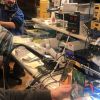 +46 +7
+46 +7Five States Are Considering Bills to Legalize the 'Right to Repair' Electronics
The bills are aimed at destroying Apple and other manufacturers' monopoly on repairing your electronics.
-
 +10 +1
+10 +1USB-C Power Meter Helps You Spot Counterfeit Accessories Before They Fry Your Gadgets - Slashdot
USB Type-C cables are not all created equally. In fact, some USB Type-C cables fail so badly that they will permanently damage your hardware. Benson Leung, an engineer on Google's Pixel team, discovered early last year that there's even more risk to your electronics when you've got a cheap USB-C cab...
-
 +22 +3
+22 +3Long-lasting flow battery could run for more than a decade with minimum upkeep
Researchers from the Harvard John A. Paulson School of Engineering and Applied Sciences (SEAS) have developed a new flow battery that stores energy in organic molecules dissolved in neutral pH water. This new chemistry allows for a non-toxic, non-corrosive battery with an exceptionally long lifetime and offers the potential to significantly decrease the costs of production.
-
 +30 +8
+30 +894-year old Lithium-Ion battery inventor unveils new ultra-efficient glass battery
The new battery uses a sodium- or lithium-coated glass electrolyte that has three times the storage capacity of a lithium ion battery.
Submit a link
Start a discussion




















